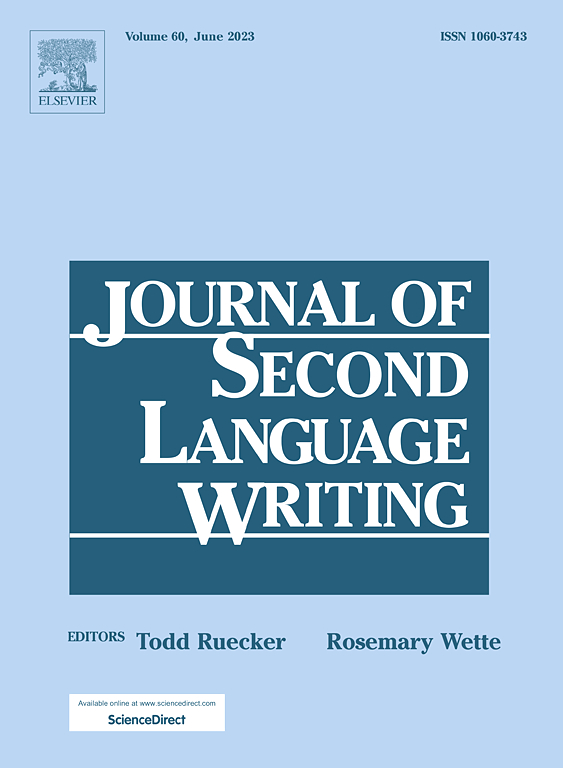Noticing and metalinguistic awareness in the L2 writing process: A translation-based writing task for L1 Arabic speakers preparing to teach Hebrew as a second language
Abstract
This study explores aspects of noticing and metalinguistic awareness in L2 writing via a translation-based writing task that involved L2 output followed by translation to the L1 and then reverse translation back to the L2. We designed an innovative writing task that included translation, informal contrastive analysis, and learners’ evolving interlanguage. We administered the task to 37, L1 Arabic speakers who were preparing to become teachers of Hebrew as a Second Language in Israel. We present what participants reported as salient during three stages of the task: (1) after producing written output in Hebrew (L2) and then translating the text into Arabic (L1); (2) after reverse translating the text from Arabic back to Hebrew (L1 to L2); and (3) after completing the writing task and orally debriefing as a group. Content and thematic analysis of participants’ collected reflections revealed four areas of linguistic saliency: (1) vocabulary and semantics; (2) syntax and structure; (3) content; and (4) pragmatics. Findings suggest translation-based writing tasks raise metacognitive awareness around these four components of L2 writing. Implications for L2 classroom writing pedagogy will be discussed.

 求助内容:
求助内容: 应助结果提醒方式:
应助结果提醒方式:


